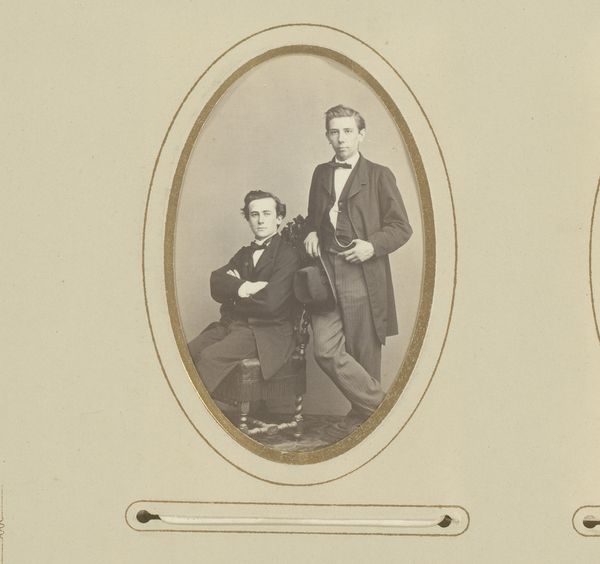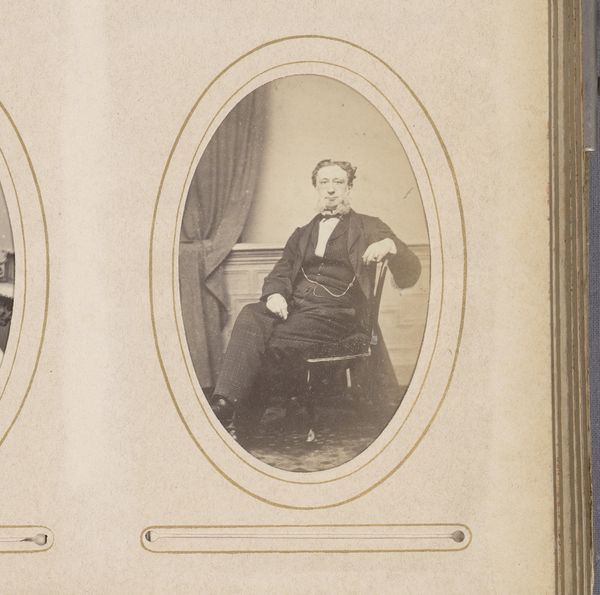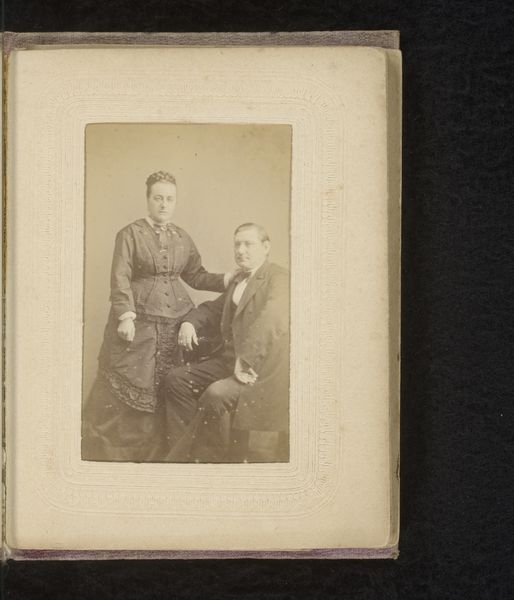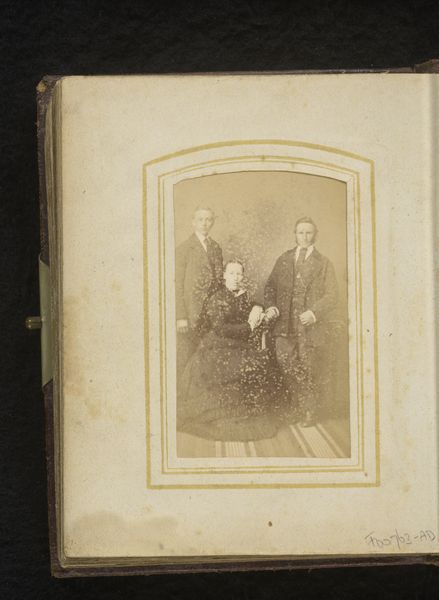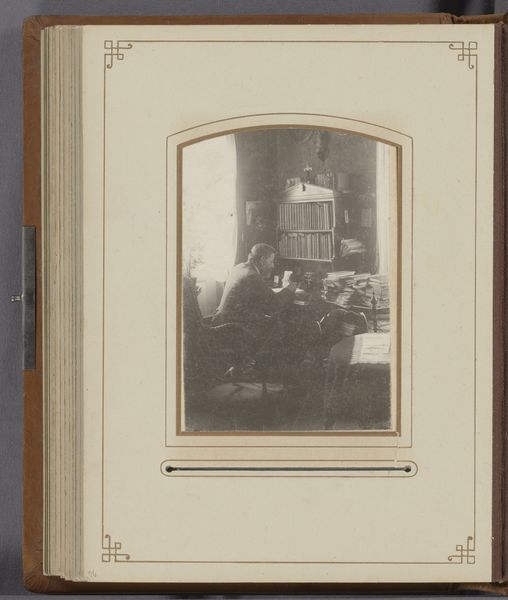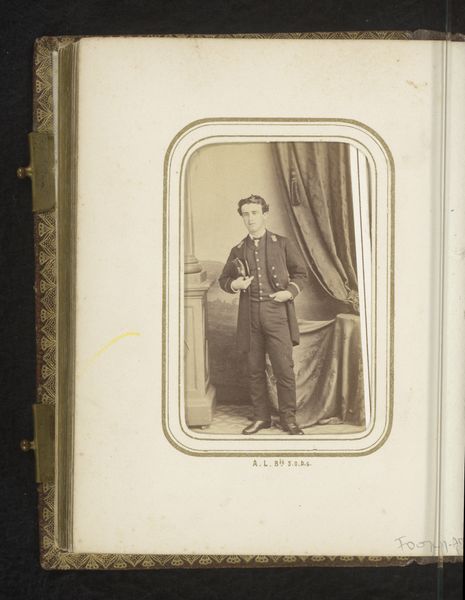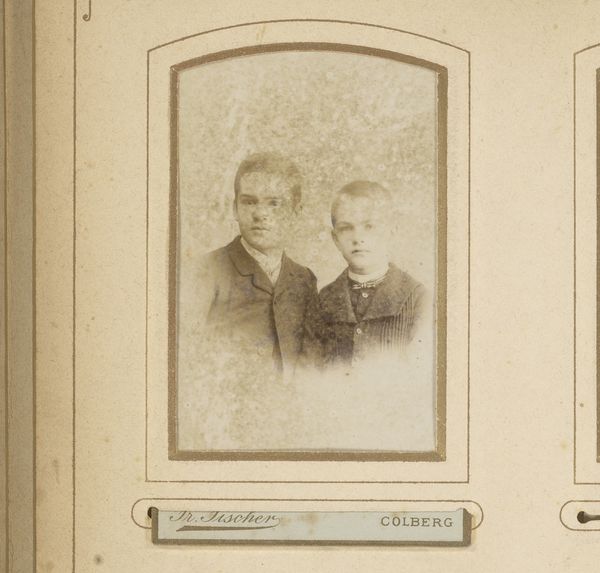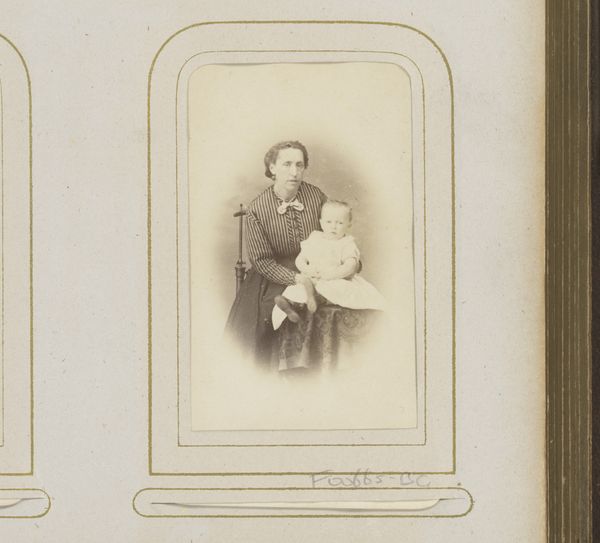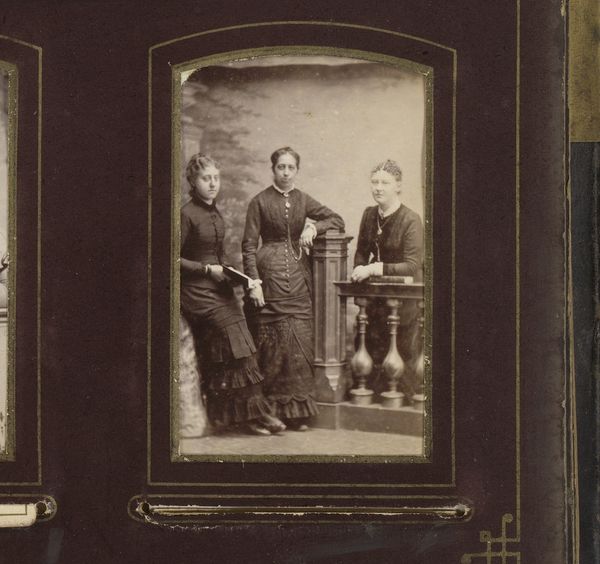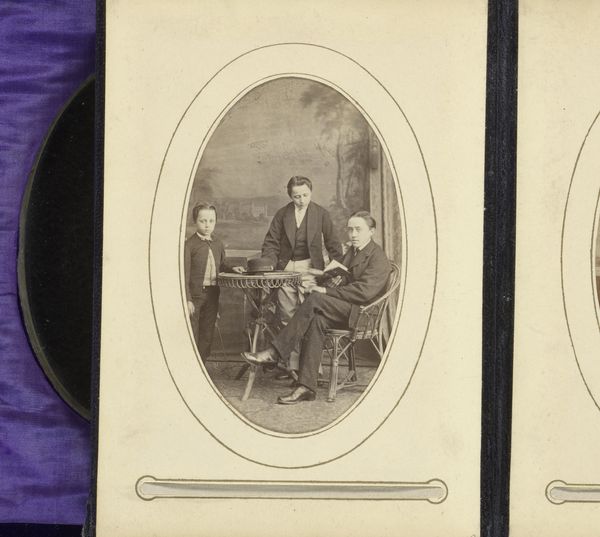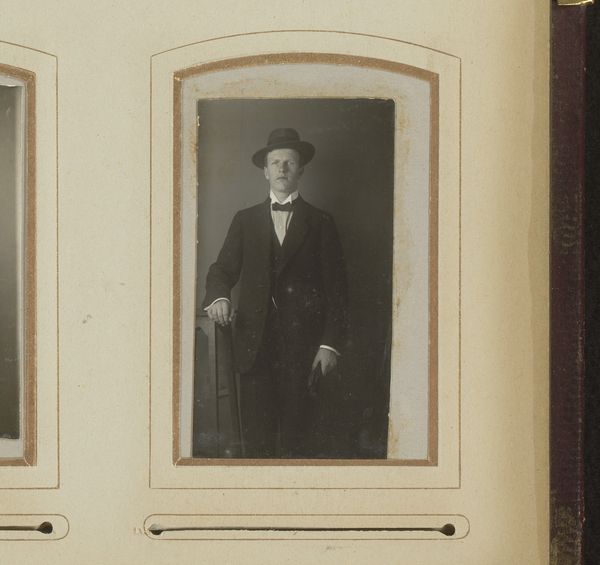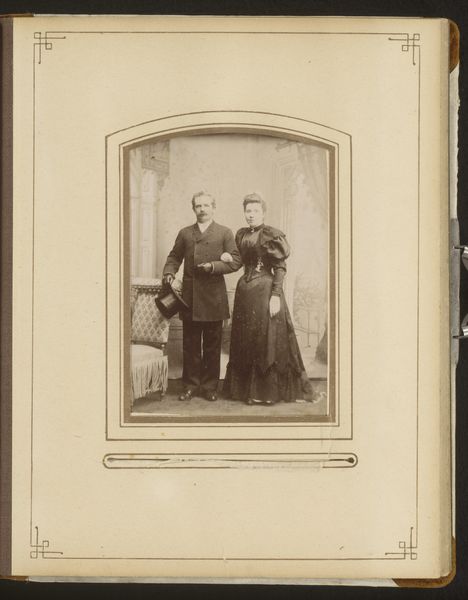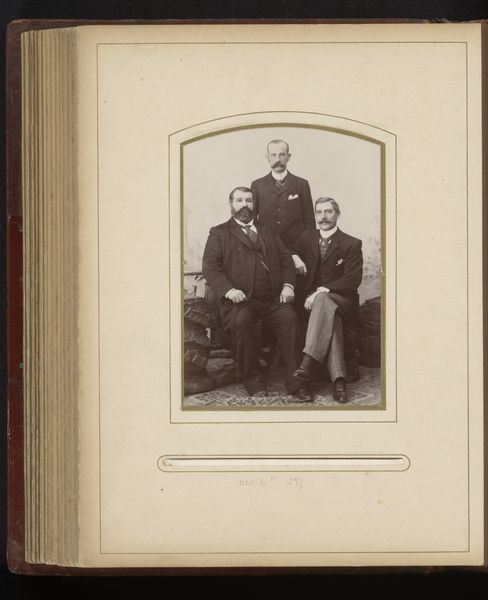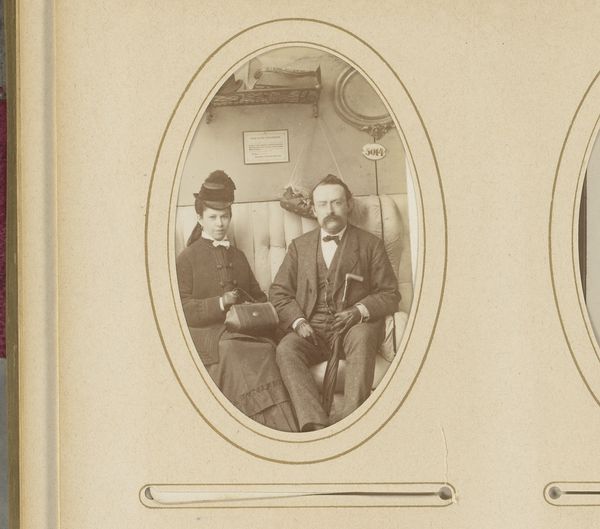
photography, gelatin-silver-print
#
portrait
#
muted colour palette
#
photo restoration
#
photography
#
group-portraits
#
gelatin-silver-print
#
neutral brown palette
#
paper medium
#
realism
Dimensions: height 140 mm, width 100 mm
Copyright: Rijks Museum: Open Domain
Editor: This is "Family Portrait with Father, Mother, and Child," dating from around 1880 to 1920 by Karl Funk. It’s a gelatin silver print and what strikes me is how formal and posed it all is. What are your thoughts about this work? Curator: I notice the meticulous layering of the gelatin silver print on a paper medium, encased within what appears to be a photograph album. This speaks volumes about the cultural importance attached to portraiture and its dissemination during this period. The very act of commissioning and producing such a photograph underscores the aspirations and material realities of the subjects. Editor: Material realities? Could you explain that a bit more? Curator: Consider the labor involved—the photographer’s studio, the cost of materials like gelatin and silver, and the time investment required to pose and print the image. These factors positioned photography as a commodity accessible to certain social strata, not to all. Furthermore, notice the subjects' garments. The quality and type of fabrics are reflective of class and economics. How do they signify wealth and position? Editor: I guess the suits and dark garments suggest a degree of economic standing. What I see here reflects what families wanted to convey about themselves. Curator: Precisely. This image serves not just as a family memento, but as a crafted performance designed for public consumption, demonstrating control and the family’s position within the wider social fabric of that moment. The paper on which it is printed contributes significantly to its display, archival worth, and durability as an artefact. Editor: It’s interesting to see how the materials themselves tell a story about production and how that can be interpreted from a materialist view. Curator: Absolutely. By focusing on the materials and mode of its production we unravel complex narratives that reveal more than the people in it.
Comments
No comments
Be the first to comment and join the conversation on the ultimate creative platform.
